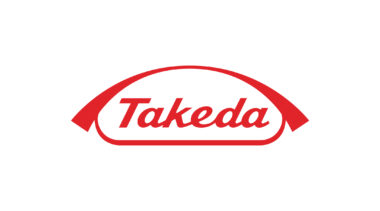Sydney, Australia, 28 November 2024 – Celosia Therapeutics, an Australian biotech company developing advanced gene therapies for neurodegenerative diseases, has completed one of the largest Series A raises for an Australian biotech start-up, raising $16.75M to advance its program for amyotrophic lateral sclerosis (ALS) disease.
This landmark financing round was led by Uniseed, Australia’s longest-running research commercialisation fund, with a major contribution from hedge fund manager and ALS patient, Mr Iomar Barrett, and support from tertiary education sector superannuation fund UniSuper.
The funds will be used to advance the development of Celosia Therapeutics’ lead candidate, CTx1000, a novel gene therapy that targets TDP-43, a protein directly linked to ALS pathology.
ALS is the most common form of Motor Neuron Disease (MND) and causes the progressive loss of motor neurons in the brain and spinal cord, resulting in the loss of muscle control and eventual death. Currently, there is no cure to reverse damage to motor neurons or to cure the disease. Celosia’s CTx1000 therapy, developed based on the discovery made by Professor Yazi Ke and Professor Lars Ittner from Macquarie University’s Dementia Research Centre, has shown the potential to not only stop the progression of the disease but in fact reverse the damage.
Dr Kathryn Sunn, Chief Executive Officer at Celosia Therapeutics, said: “This landmark investment is a huge boost for the biotech sector, and not only validates Celosia’s innovative approach but also positions Australia at the forefront of global ALS research. Our CTx1000 gene therapy program capitalises on 15 years of research from the team at Macquarie University, led by Professor Ittner and Professor Ke. This new funding will fast-track clinical application of their research discoveries, enabling us to bring life-changing therapies to those who need them the most.”
Mr Iomar Barrett, hedge fund manager and major contributor to the Series A round, said: “The CTx1000 program and Celosia team represent a realistic pathway to finding a cure for ALS, and I am glad to be a part of this journey. As a fund manager for over 20 years, it is my job to identify macro trends and emerging technologies that are poised to reshape the future. I believe that CTx1000 is one of such significance for patients around the world, with the promise of bringing tangible benefits and rewriting the narrative for ALS patients.”
Dr Peter Devine, Chief Executive Officer at Uniseed, said: “Uniseed is proud to lead this financing round for Celosia Therapeutics. Our investment underscores our confidence in the company’s innovative gene therapy approach and the potential of CTx1000 to address a critical unmet need in ALS. We are excited to support Celosia’s team as they advance toward clinical trials and continue making strides toward a transformative treatment for ALS patients worldwide.”
Launched by Macquarie University with more than $2M in seed funding in 2022, Celosia Therapeutics was granted exclusive access to a portfolio of patents for advanced gene therapies developed by the University’s researchers.
Professor Dan Johnson, Pro Vice-Chancellor, Research, Innovation and Enterprise at Macquarie University; Managing Director at Access Macquarie; and Director at Celosia, said: “Macquarie University created and seed-funded Celosia Therapeutics to facilitate the translation of pioneering research into tangible outcomes for the benefit of patients and to support a local entrepreneurial research ecosystem. The completion of this funding round represents a crucial step in accelerating the development of therapies that could bring meaningful change to those living with ALS.”
About CTx1000
In February 2024, the groundbreaking discovery made by Prof Ittner and Prof Ke, now exclusively licensed to Celosia to develop the genetic medicine, CTx1000, was published in the prestigious journal Neuron. The publication identified a novel protein interactor, 14-3-3θ, that interacts exclusively with only toxic forms of TDP-43, a protein that is normally found in neurons in the brain and spinal cord, and in diseases such as ALS.
The exclusive binding between 14-3-3θ and toxic forms of TDP-43 leads to a viable solution to clean up the neurons and reverse the damage. Once the toxic TDP-43 is removed from neurons, the normal functioning form of TDP-43 is restored and neuron health is preserved. Preclinical data observed that in mice models, CTx1000 is able to pause the progression of ALS at a very advanced stage, even partially reversing the disease in some cases.
Prof Lars Ittner, Chief Medical Officer at Celosia and Director at the Dementia Research Centre at Macquarie University, said: “CTx1000 is a novel disease-modifying therapy for ALS, differentiating itself from other treatments that only target symptoms of the disease. We firmly believe in the potential of this therapy, and are excited to continue exploring its efficacy at clinical stages.”
-END-
About us:
Celosia Therapeutics Pty Ltd is a biotechnology company focused on developing innovative gene therapies for neurodegenerative diseases, with a particular focus on amyotrophic lateral sclerosis (ALS). The company’s lead candidate, CTx1000, aims to target the TDP-43 protein, which plays a critical role in ALS pathology.
Contact details:
Evelyn Yang
0432 871 726


